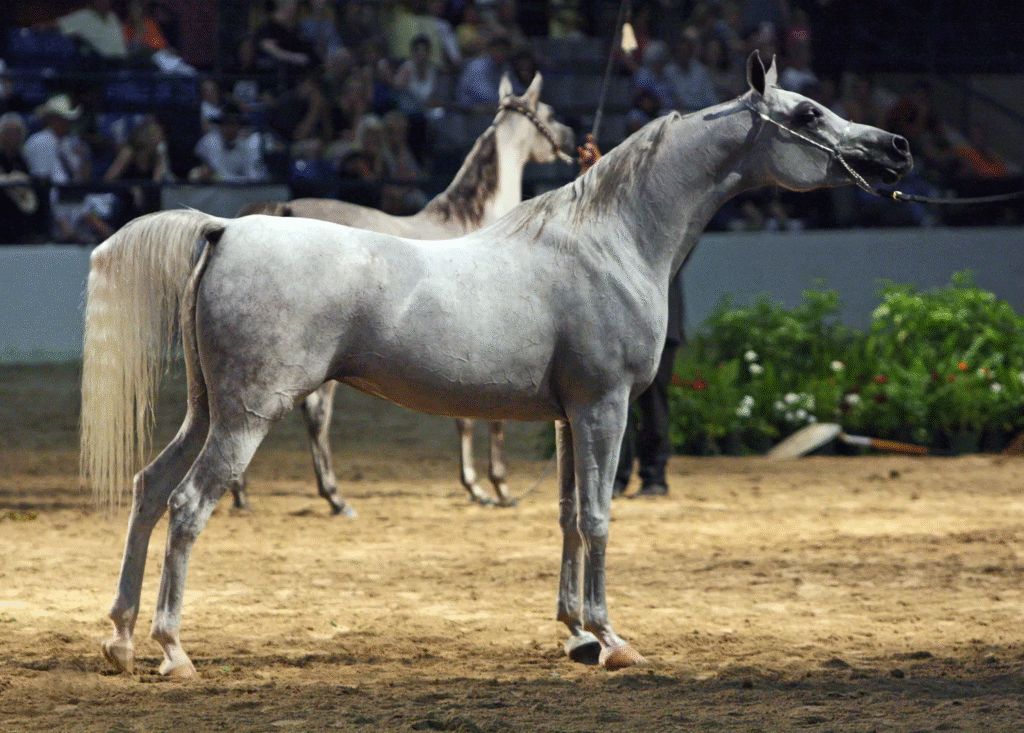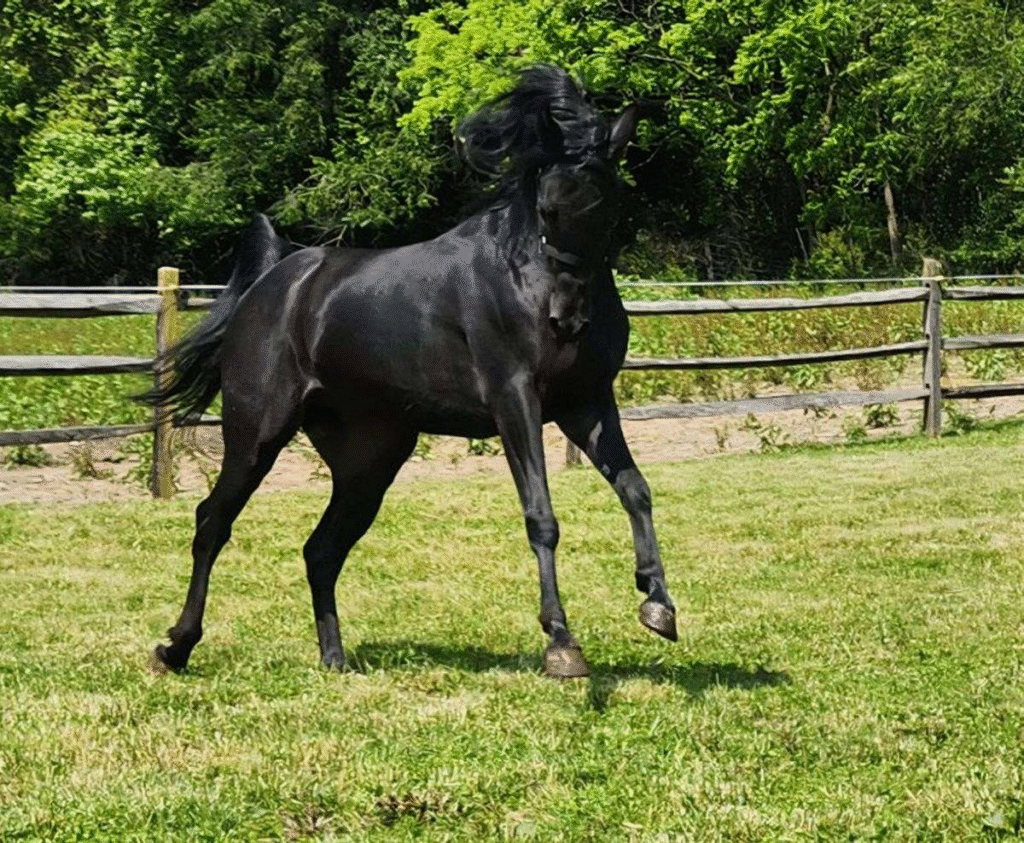Arabian horses have always carried an air of mystique, nobility, and timeless beauty—but the Egyptian Black Arabian Horse? That’s a whole different level of majestic. With their inky coats, chiselled features, and commanding presence, these horses aren’t just rare—they’re unforgettable.
The Allure of the Black Coat

Black horses have long been symbols of mystery, power, and elegance. Among Arabians, the black coat is especially captivating due to its rarity and the dramatic contrast it creates with the breed’s delicate features.
Origins and Historical Significance
The Arabian horse is one of the oldest and most influential breeds in the world. Originating from the deserts of the Middle East, they were bred by Bedouins for their endurance and loyalty. Egyptian Arabians, in particular, trace their lineage back to horses carefully maintained in the royal stables of Egypt. Their bloodlines are considered among the purest—and the black variant? A desert-born rarity, often reserved for nobility.
What Makes the Egyptian Arabian Horse Unique?

Purity of Bloodline
Egyptian Arabians are considered “Straight Egyptian” if every ancestor in their pedigree traces back to the Egyptian Agricultural Organization’s studbooks. This makes them a symbol of purity and ancient blood.
Distinct Physical Characteristics
They’re known for their:
- Dished profiles
- High tail carriage
- Long, arched necks
- Large, expressive eyes
Combine that with a shiny black coat and you’ve got an absolute showstopper.
Cultural Reverence in the Middle East
In Arabian culture, horses—especially those of noble bloodlines—were considered gifts from Allah. The Egyptian black Arabian often appeared in poetry and tribal legends, reflecting its treasured status.
The Rarity of the Black Egyptian Arabian Horse

Why Black is Considered Rare and Regal
Among Egyptian Arabians, black is not the dominant color. Most are grey, bay, or chestnut. Black emerges from selective breeding and recessive genetics, making these horses highly prized.
Genetics Behind the Black Coat Color
To produce a black Arabian, both parents must carry the black gene. However, the gene pool for straight Egyptian blacks is limited. That makes every foal with a true black coat a genetic gem.
Famous Black Egyptian Arabian Stallions

Reference Stallions in Breeding Programs
Some standout names include:
- Thee Desperado – One of the most influential black Egyptian Arabians.
- Alixir – Known for passing on exceptional conformation and charisma.
- Ansata Sinan – Though not black, played a pivotal role in producing black offspring through his lines.
Internationally Acclaimed Bloodlines
Egyptian black Arabians have found homes across the U.S., Europe, and the Gulf. Top studs around the world specialize in preserving these prestigious lines.
Egyptian Black Arabian Horse Bloodlines

Straight Egyptian Lineage
Only horses whose ancestry traces exclusively to Egyptian horses are recognized as Straight Egyptian. These bloodlines are often registered through organizations like the Pyramid Society.
Key Bloodline Families (e.g., Dahman, Saklawi, Hadban)
Each bloodline carries unique features:
- Dahman Shahwan: Powerful build and stamina
- Saklawi Jedran: Beauty and elegance
- Hadban Enzahi: Hardiness and sound temperament
Characteristics of Black Egyptian Arabian Horses

Height, Build, and Elegance
Typically, these horses stand between 14.2 and 15 hands high. Their athletic yet refined build makes them suitable for everything from showing to endurance riding.
Temperament and Intelligence
Known for being intelligent, alert, and affectionate, these horses build strong bonds with their owners. They are quick learners, making training a rewarding experience.
Versatility in Various Disciplines
Whether it’s endurance racing, dressage, or simply turning heads in a parade, black Egyptian Arabians excel in every role.
Breeding and Preservation Efforts
Role of Breeders Worldwide
Breeders in the U.S., UAE, Saudi Arabia, and Europe are collaborating to sustain and enrich black Egyptian bloodlines. They’re deeply committed to maintaining both genetic integrity and physical excellence.
Preservation of Authentic Bloodlines
Organizations like The Pyramid Society offer resources, pedigree verification, and breed-specific events to help preserve this heritage.
Challenges in Breeding Black Egyptian Arabians

Genetic Limitations
Due to the narrow gene pool, it’s challenging to produce healthy black foals without risking inbreeding. This makes responsible breeding even more critical.
Ethical Breeding Practices
Breeders are encouraged to prioritize health, temperament, and structural soundness over coat color alone.
Showing and Competitions
Participation in Arabian Horse Shows
Black Egyptian Arabians frequently dominate in halter classes due to their striking appearance. Their elegance also shines in liberty and costume classes.
Judging Criteria for Black Arabians
Judges look for adherence to breed standards, quality of movement, and presence—all traits black Egyptian Arabians embody.
Role of Egyptian Black Arabians in Modern Culture
Influence in Literature, Art, and Cinema
From ancient scrolls to Hollywood films, black Arabians often symbolize freedom, nobility, and the untamed spirit of the desert.
Black Arabians in Royal Stables
These horses are often part of elite collections in Middle Eastern royal stables due to their prestige and symbolic power.
Caring for an Egyptian Black Arabian Horse

Feeding and Grooming Tips
A high-fiber diet, clean water, and regular grooming are essentials. Their black coats need special attention to avoid fading under the sun—often requiring UV-protective blankets or shade.
Health and Wellness Considerations
Routine vet checks, hoof care, and dental exams are crucial. These horses are generally hardy but still benefit from proactive care.
Market Value and Investment Potential
How Much Do They Cost?
Prices range from $20,000 to over $100,000 depending on lineage, conformation, and training.
Why Are They Considered High Value?
Rarity, beauty, and history make them highly sought-after by collectors, breeders, and enthusiasts.
Common Myths and Misconceptions
Misunderstood Genetics
Many think all Arabians are white or grey. While these are common, black is a natural (though rare) coat color.
Misconceptions About Aggression or Temperament
Some assume black horses are wild or aggressive—a myth with zero basis. Black Arabians are as gentle and trainable as any other.
Tips for Buying a Black Egyptian Arabian Horse

What to Look for in a Purebred Stallion or Mare
Ensure the horse is Straight Egyptian and registered with reputable organizations. Ask for DNA verification and bloodline history.
How to Avoid Common Buyer Mistakes
Never buy based on color alone. Evaluate health, conformation, and temperament—and always buy from ethical breeders.
Conclusion
The Egyptian Black Arabian Horse isn’t just a horse—it’s a living legacy. From ancient desert sands to modern-day show rings, this majestic creature carries centuries of history, elegance, and excellence. Whether you’re a breeder, a rider, or just a horse lover, there’s no denying the unmatched allure of the black Egyptian Arabian.
FAQs
1. What is the lifespan of a black Egyptian Arabian horse?
Most live between 25 to 30 years, with proper care and nutrition.
2. Can black Egyptian Arabians be registered?
Absolutely. If the bloodlines are verifiable and meet breed standards, they can be registered with major Arabian horse organizations.
3. How can you tell if an Arabian is Straight Egyptian?
By reviewing its pedigree and confirming that all ancestors trace back to Egyptian lines recognized by organizations like The Pyramid Society.
4. Are black coats natural in Arabians or bred in?
Black is a natural but recessive coat color in Arabians, requiring careful selective breeding.
5. What disciplines do black Egyptian Arabians excel in?
They shine in halter shows, endurance riding, dressage, and more—thanks to their versatility and intelligence.







